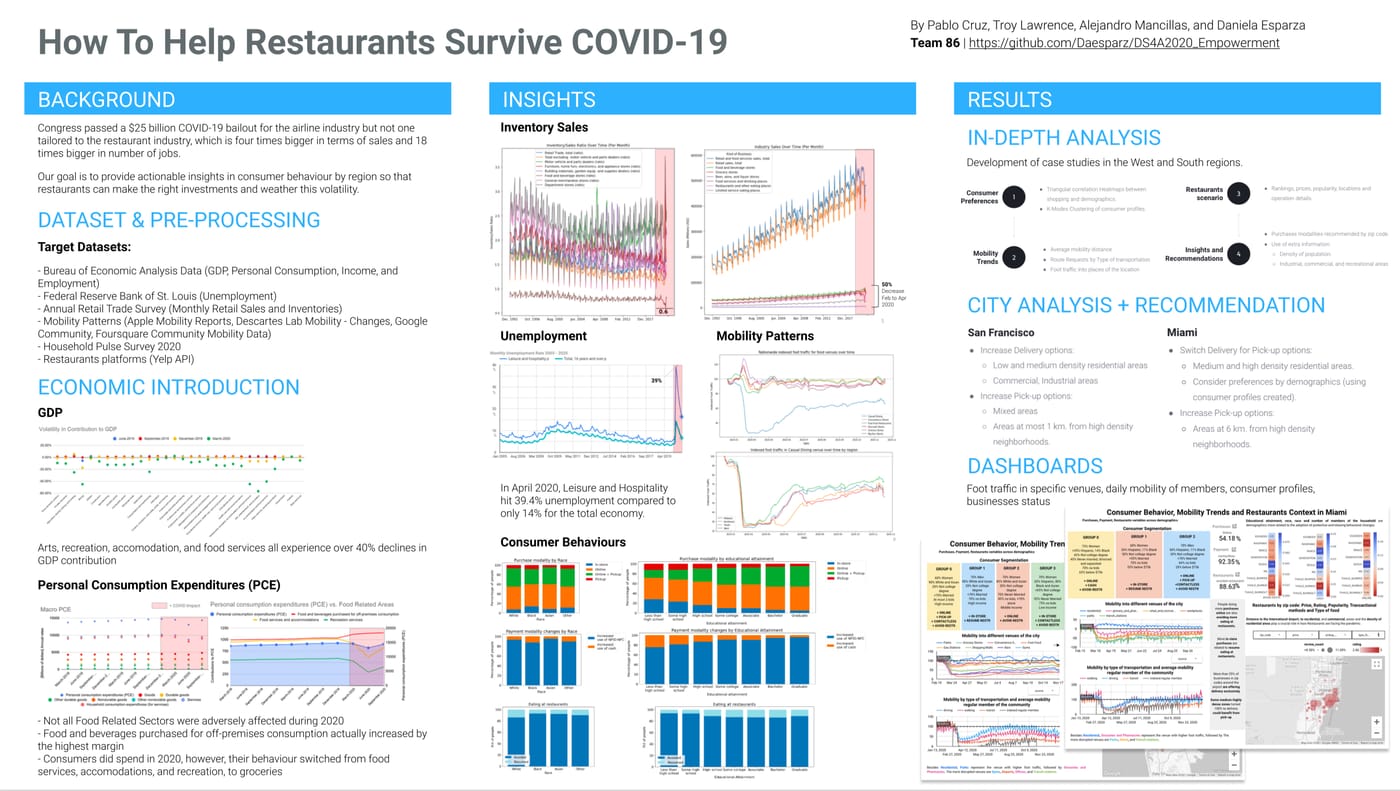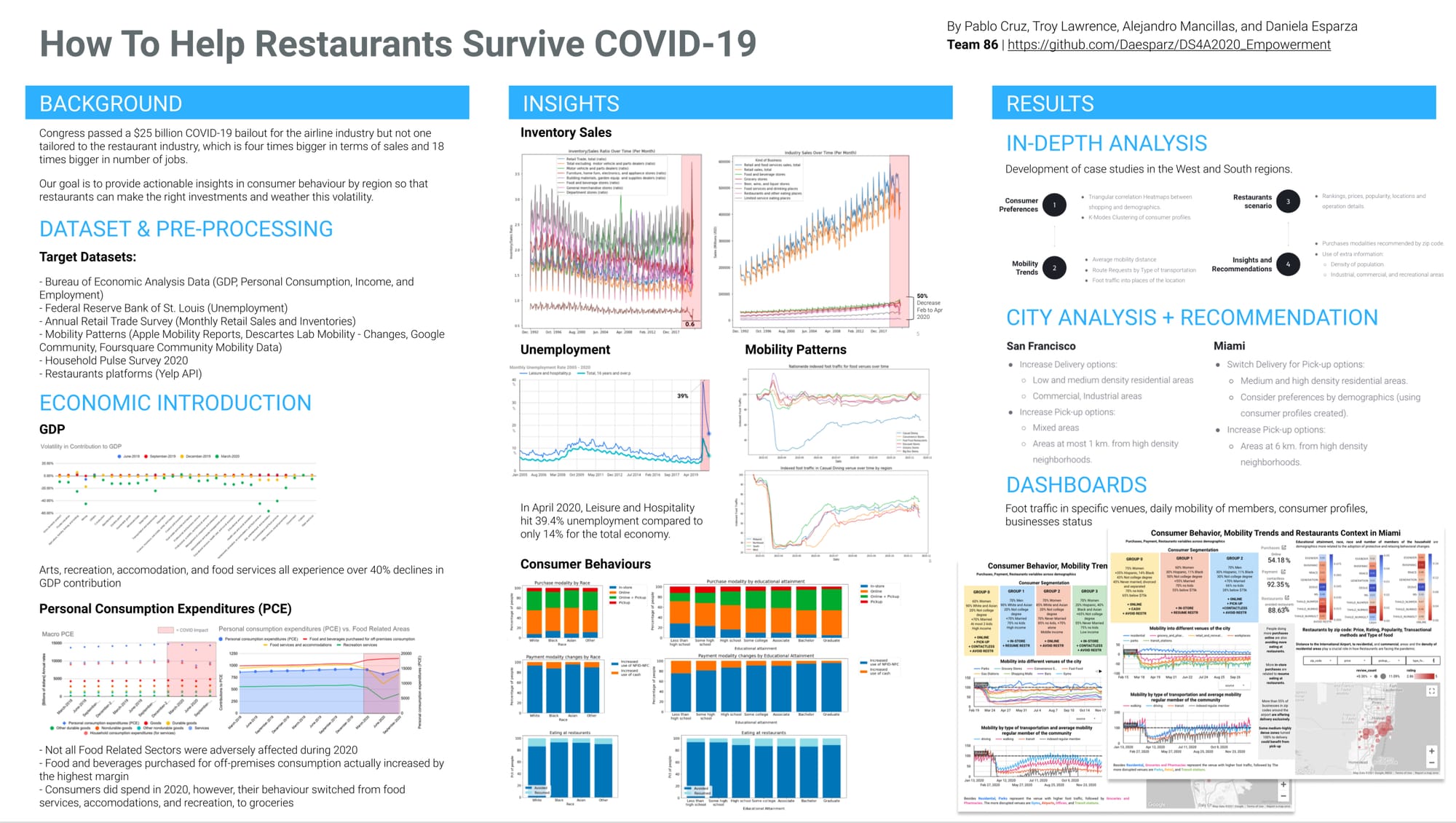

Resurfacing my Data Science Bootcamp Thesis Project.
I enrolled into the Data Science 4 All (DS4A) Bootcamp run by Correlation One in Q3 of 2020.
DS4A is an exclusive and exceptional career advancement program uniquely crafted for experienced data professionals seeking to fast-track their careers. A career accelerator, the program specifically focuses on honing your skills and industry readiness.
It is considered the highest-rated data training program in the world.
Program Outputs
Students had to complete graded data science assignments every 2 weeks, pass monthly exams, and complete a Data Science Thesis with a team of peers. The thesis, which is supposed to envelope all the learning throughout the program, is the chief output that would be judged by a series of panelists and be entered into a competition where winners receive a financial sum.
Personal Program Accolades
- Graduated from the Data Science 4 All (DS4A) Bootcamp
- Graduated with Honors
- Received the Anaplan Distinguished Fellow Award
- Team Leader for group project
- Thesis project won "Crowd Favorite" award
- Thesis project won the entire competition (1 out of 500 members) >> Datafolio + report is attached herein
Team Thesis which Won the National Data Science Competition
Summary
The report offers a comprehensive analysis aimed at aiding the restaurant industry in navigating the challenges posed by the COVID-19 pandemic. It delves into the extensive impact of the pandemic on the restaurant industry, highlighting the sector's significant losses projected to exceed $240 billion by the end of 2020. Despite being a crucial part of the economy, the restaurant industry did not receive a tailored bailout, emphasizing the urgency for targeted support.
The report's primary objective is to identify strategies that can help restaurants adapt and survive during these trying times.
It proposes focusing on consumer preferences and mobility patterns to guide restaurants on whether to switch to delivery, enhance curbside pickup services, or modify their operational strategies. The importance of investing in low-contact technologies for safe dining experiences is underscored, reflecting the heightened consumer demand for contactless dining options.
The audience for this report extends beyond the restaurant industry, including tech companies that could play a pivotal role in developing solutions for contactless dining and payment, as well as community-supported agriculture and farmers' markets, whose partnerships with restaurants are vital for sustaining local food systems.
The data-driven approach of this report leverages multiple publicly available datasets, covering a wide range of economic, employment, mobility, and consumer behavior metrics. It outlines a detailed data cleaning and structuring process, ensuring that the analysis is based on accurate and relevant information.
The analysis highlights the shift in consumer behavior towards online and contactless payment methods, the essential nature of takeout orders, and the potential for technology to bridge the gap between restaurants and their customers. It also points out the critical role of consumer preferences and mobility patterns in determining the future of dining experiences.
Overall, the report paints a picture of an industry at a crossroads, with the potential to adapt and thrive through innovative approaches to dining, safety, and customer engagement. It is a call to action for stakeholders across the spectrum to collaborate in supporting one of the most affected sectors of the economy during the pandemic.
Presentation
DataFolio
